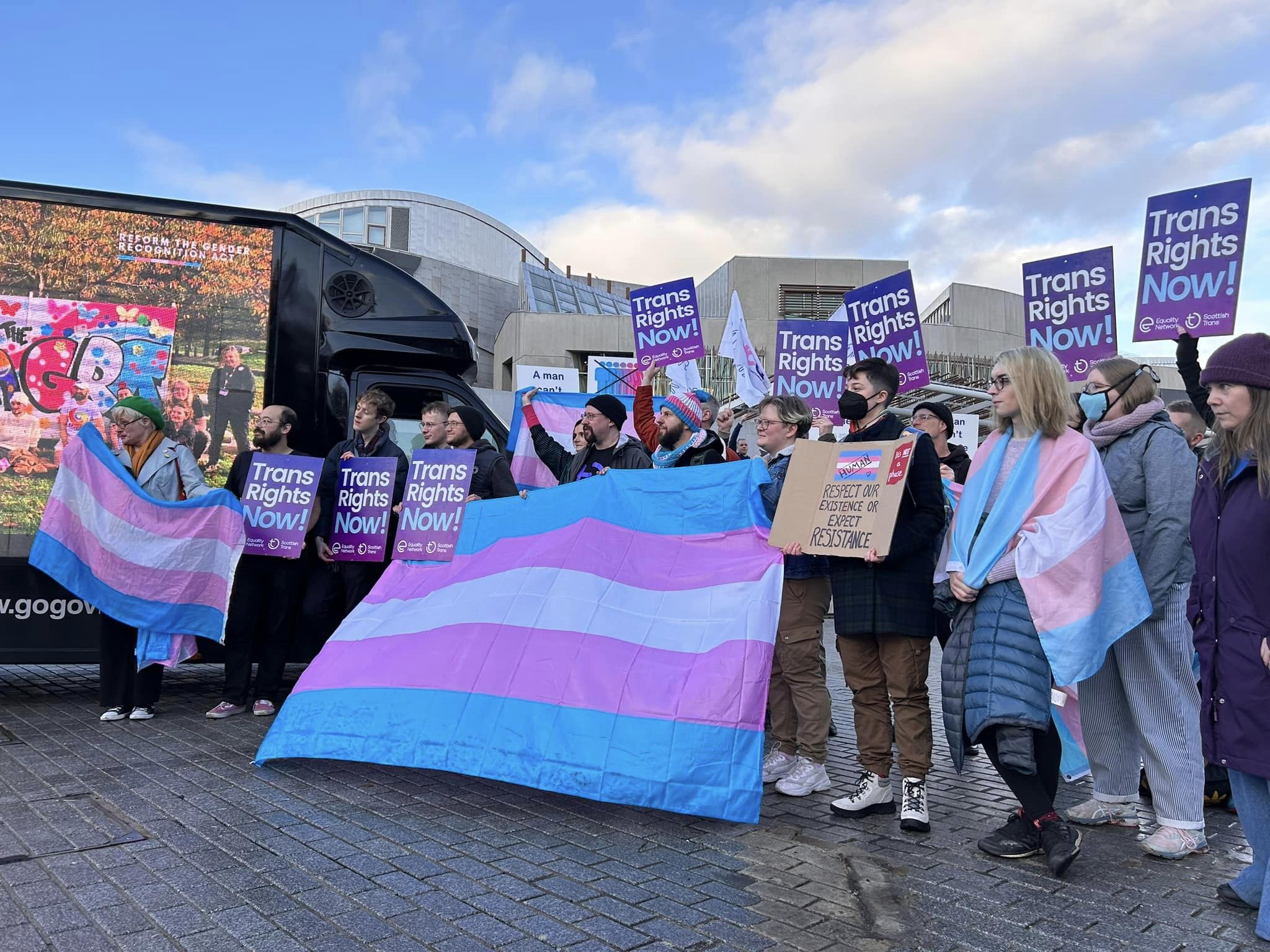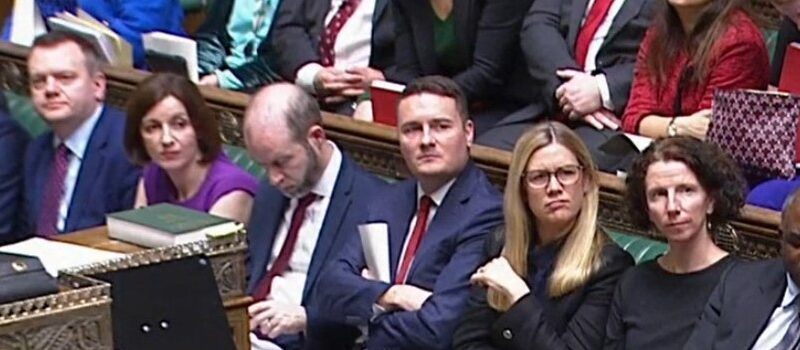By Ray Goodspeed (Leyton and Wanstead CLP)
Trans rights campaigners and their allies throughout the labour movement were delighted to receive a present before the Christmas holidays start – and a very welcome present it is, at a time of increasingly fierce attacks on trans people in the mainstream and social media, and a marked increase in actual transphobic hate-crimes.
By 86 votes to 39, the Scottish Parliament passed the Gender Recognition Reform (GRR) Bill and thereby agreed to change the way in which a Gender Recognition Certificate (GRC) can be obtained, making it easier, de-medicalised and relying on an individual’s legal statutory declaration – the famous so-called “self-id” that anti-trans activists obsess about. A detailed breakdown of the vote can be found here.
As one Member of the Scottish Parliament (MSP) said in the final part of the debate, this is a small administrative change, which could improve the lives of trans people (between 0.5% and 1% of the population) and which could have been debated and implemented in an afternoon. Instead, the whole issue became a lightning rod as anti-trans campaigners used this modest measure to introduce into the “debate” countless issues that have little or nothing to do with the bill, so as to spread as much fear and confusion as possible.
Delays
It has taken six years, two rounds of extensive consultation and two previous legislative stages, to finally reach the third and decision stage. Then, on 20th and 21st December, ten- and thirteen-hour sessions were necessary, stretching into the early hours, and dealing with ever-more-pointless and time-wasting amendments. Finally, on Thursday 22nd, a few more hours were still needed to debate the bill in its final form and pass it.
And still, even now, the UK Tory government is making vague suggestions that it could challenge the legality of the bill and prevent it from getting the Royal Assent. Any such move would be strongly resisted by the Scottish Government. All socialists and democrats should also oppose any attempt to over-rule the democratic decision of the Scottish Parliament.
Given the intensity of debates around this bill and the tsunami of misinformation and lies being spread by its opponents, it is important for those in the Labour movement properly to understand the measure: – What is a GRC? What does it do, and what does it not do? And what changes will the new bill introduce? A more detailed analysis of trans issues can be found here and here.
What is a Gender Recognition Certificate?
Gender Recognition Certificates (GRC) were introduced in the UK-wide Gender Recognition Act of 2004. They are simply a way of gaining formal legal recognition of your change of gender. That means, in effect, changing your birth certificate to match what the law insists on calling your “acquired gender”.
They are not necessary to change your name, your passport, or your records at work, school or college. But if you wish to marry in your “acquired gender”, you need a GRC to allow that gender to be registered on your wedding certificate. The same applies to death certificates and during the debate, MSPs gave very sad examples of people being unable to marry or be buried as the correct gender. It has some effect on claiming state pensions but since the equalisation of pension ages between men and women this is rapidly diminishing.
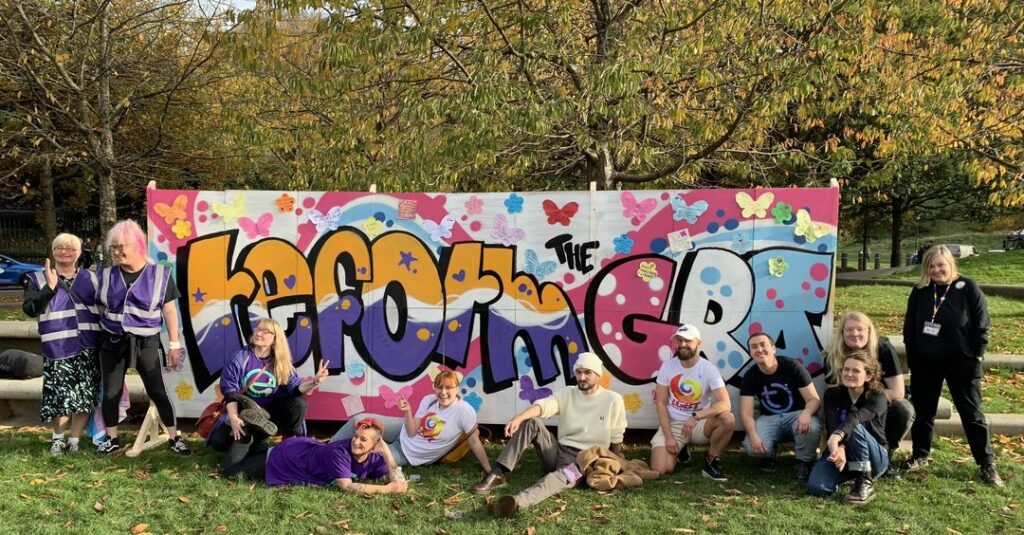
Reform the GRA!
In addition, if any state or social institution requires a birth certificate to be presented as evidence of identity, trans people risk “outing” themselves and having to explain to some random official why their birth certificate records a gender different to the one in which they are living, with all the embarrassment and need for intrusive explanations that can create. Possession of a GRC solves that problem, as a new birth certificate can be issued.
GRCs do NOT require any surgery but they do require a diagnosis of gender dysphoria from a medical or psychiatric practitioner. The existing law also requires the trans person to show evidence that they have “lived in their acquired gender” for two years, in some sort of documented form. All these diagnoses and bits of evidence are then sent, along with a fee, to a panel, whose members the trans person never meets, and it is that panel that decides if the person is allowed a GRC or not!
There used to be a consensus among all main parties, including the Conservative Party, that this was demeaning, intrusive and absurd. That was before the Tories discovered the value of the issue in whipping up a savage culture war, as a crude vote-winner and a useful way to divide working people. Sadly, a small number of those who define as feminists and/or socialists have been happy to lend a them a hand, as have some in the SNP.
What do GRCs NOT do?
It is important to note that you do NOT need a GRC to access any trans-related healthcare such as hormone treatments or surgery. Most people who have those do not have a GRC, and may never need or want one. It has NO impact on the actual numbers of trans adults or trans teenagers or children, nor on the numbers of those who may wish to transition or the nature of the medical or psychiatric services provided to help them.
Of course, nobody has ever had to present a birth certificate or a GRC to access a public toilet or a changing room, or a woman’s refuge, so the issue is irrelevant to the issue of “women’s spaces”. Trans women have been using such facilities forever with barely a murmur until the recent transphobic moral panic. Most refuges have their own robust procedures and assessments for dealing with risk from ANY potential service users, and have been including trans women in their services for years.
Possession of a GRC does not automatically guarantee a trans woman prisoner the right to be housed in a women’s prison. In the whole of the UK, the vast majority of trans women prisoners, all but around a dozen individuals, are housed in men’s prisons. Decisions are made on a case-by-case basis by the prison authorities after a full risk assessment of the offender concerned.
Possession of a GRC has no effect on the participation or otherwise of trans people in sport. The law leaves that matter entirely to national, international and other official sporting bodies, which have adopted a range of different policy positions. Nor does it impact on religious organisations.
Changes
The new Gender Recognition Reform Bill abolishes the insulting GRC panel, and it removes the need for a diagnosis of gender dysphoria. Although dysphoria, a distressing feeling of mis-match between your gender and your physical body, is a very common and painful experience for most (but not all) trans people, it does not define them, and a trans person’s identity should not hang on the word of a doctor or psychiatrist when there is no illness.
Instead, the bill stipulates that applicants must sign a legally-witnessed statutory declaration that they intend to live in the “new” gender for the rest of their lives, and this is then approved by the local registrar. A two-year prison sentence for making a fraudulent declaration is included in the bill, and any subsequent crime committed which involves obtaining one fraudulently is punished more harshly. The police can ask for any person subject to a “sexual offences order” to be assessed and a GRC can possibly be refused on those grounds.
The bill reduces the time needed to “live in your acquired gender” from two years to three months before the certificate can be agreed and stipulates a further three-months period of reflection in case of a change of mind. The age limit for applying for a GRC is reduced from 18 to 16, but for young people between those ages, the waiting period was extended, in a Labour “extra safeguarding” amendment, to six months. Trans campaigning organisations, it must be said, oppose any imposed waiting time and the extended period for under 18s, but they obviously welcome this bill as a step forward.
Equality Act 2010
The 2004 Gender Recognition Act has to be understood alongside the 2010 (UK wide) Equality Act, which guarantees the right to equality for trans people, women, different racial groups, disabled people etc. The Scottish GRR Bill explicitly says (as a result of the acceptance of a Labour amendment) that nothing in the bill conflicts with the 2010 Act. There was actually no need for that amendment, because Scottish law cannot contradict the Equality Act, as it is a matter reserved to the UK Parliament. However, with the amendment, it simply could not be clearer.
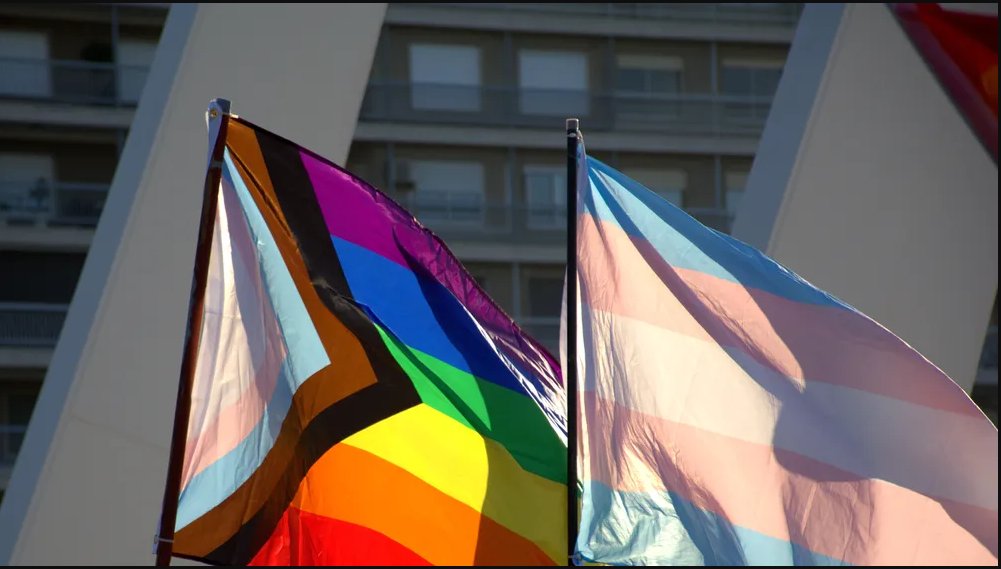
Two important points stem from that. Firstly, the 2010 Act protects the rights of trans people from the moment they start the process of transition, even of purely social transition. These protections are NOT conditional on a trans person having a GRC. Therefore, changes in Scotland to how the GRC is acquired do not increase or decrease or alter in any way the rights of trans people under the Equality Act.
Secondly, the Equality Act explicitly allows for exceptions to the rights of trans people and their exclusion in situations where there is evidence of a risk to women and the exclusion can be shown to be a proportionate response to the problem, ie that no other sensible solution can be found. That could include access to particular jobs, for example, that provide intimate services to women and other situations set out in the guidance of that Act.
The Scottish GRR Bill does not alter those clauses of the Equality Act by as much as a comma. Yet, to listen to the Tories and their handful of allies in the other parties, you would get the impression that once the GRR Bill is passed, all protections for “women and girls” under the Equality Act will suddenly be swept away. It is nonsense, of course.
The GRR Bill only changes how trans people obtain a GRC, not what it rights it gives them. What the Tories and other transphobes really want is not just to defeat proposals for so-called “self-id” but to take away the rights that trans people have already had for over 12 years. There are even suggestions that the Tories at Westminster are considering an amendment to the Equality Act, which would explicitly remove trans people’s protections under the Act.
Hypocrisy
The actual “debate” on the bill represented hypocrisy on a jaw-dropping scale. The Tories have, it appears, become sudden advocates of women’s rights. Their main spokeswoman ostentatiously wore a scarf in Suffragette colours, and every single intervention from Tory MSPs introduced “threats to women and girls” and “predatory men” into the debate. Another Tory MSP droned on endlessly while moving an amendment about women’s sport, despite the fact that this bill has absolutely no effect on that.
Of course, they are adept at pretending to be civil and polite while engaging in revolting dog-whistle prejudice. As one MSP pointed out, she’d had to listen to anti-trans MSPs saying “horrible things in a polite tone” while congratulating themselves for having a respectful debate. They had nothing against trans people, they led us to believe, but they just wanted to protect women. It’s the equivalent of debating a law on homosexual law reform but making constant references to “safeguards” against paedophiles.
But that is not all. Apparently, the Tories are now defenders of the rights of minority faiths, such as Hindus, Muslims and Sikhs! After the Tories had filibustered for hour after pointless hour, one Tory MSP who is severely disabled claimed that he was now being discriminated against by the length of the debate and that it should be suspended and postponed!
No trick was too shameless, yet when an SNP member accused them of dirty tricks, he was, of course, forced to withdraw the comment. But what else can you call pushing an amendment to a full vote, and then not voting in favour of it? Or calling for two separate votes on amendments that move the word “and” in a sentence? Or insisting on voting on an amendment that the mover themselves wanted to withdraw? In the event, three Tory MSPs voted in favour of the bill (out of a total of 31).
Warning for the left
There is a warning here to the left. The language of purely liberal identity politics stripped of any class or socialist content can easily be used and turned against us by elements of the “respectable” right. This hypocrisy needs to be robustly countered and we should not enter into deals to keep the discourse polite.
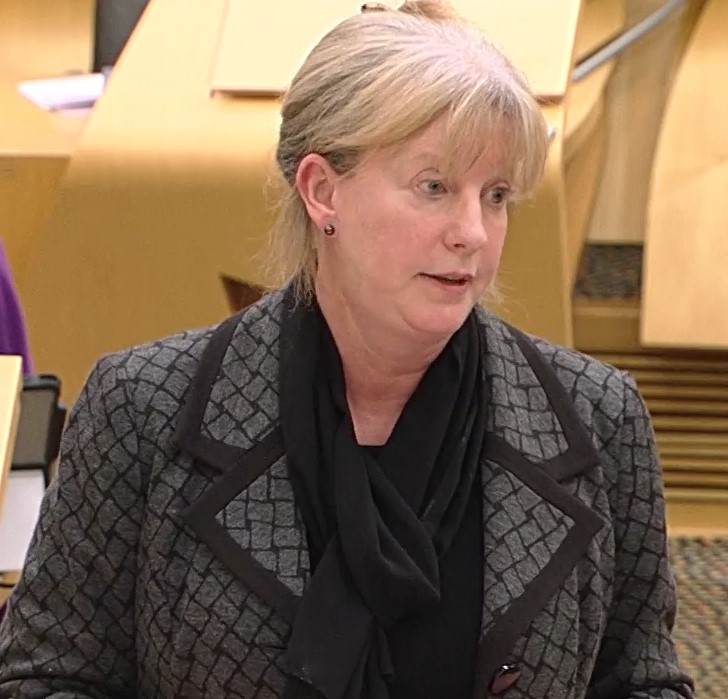
Left Horizons supporters are not nationalists. Our supporters in Scotland do not support the SNP and we orient ourselves to the Labour movement. It must be admitted, however, regardless of their overall policy platform, that the SNP have shown a great degree of courage and resilience in getting this reform through the process, in the face of outrageous personal attacks by transphobes on First Minister Nicola Sturgeon herself, including by the famous author, Joanne Rowling. The Cabinet Secretary in charge of the bill, Shona Robison, has also been vilified.
Robison has shown almost superhuman patience in endless games of transphobe whack-a-mole, calmly knocking back the mountain of irrelevant or dangerous amendments from Tories and others, including ones that really could have brought the bill into conflict with human rights law. She has also very patiently worked with other MSPs in all parties, but especially Labour, to redraft or accept amendments that are either sensible in themselves or necessary for consensus-building. Sadly, it is also true that some of the most unpleasant speeches came from a couple of SNP rebels, and nine of their 64 MSPs rebelled by voting Against (one did not vote).
Subtle game
The Greens, coalition partners of the SNP, have been solid supporters, as have the Liberal Democrats. Labour seemingly have tried to play quite a subtle game. They supported the bill and it was a whipped vote, but it seemed as if, because it was whipped, they were looking over their shoulder and going to enormous lengths to signal to their own members and rebel MSPs that they “understood their concerns” even when such concerns were false or irrelevant to the provisions of the bill.
To this end they moved a great number of amendments that wanted to introduce further “safeguards” even when the threat was non-existent. Many of these were accepted by the SNP, even if they were irrelevant, provided they were not harmful. The SNP also accepted the extra safeguarding of 16-17-year-old applicants in terms of waiting times and the level of support and guidance offered.
Other amendments were not accepted and were defeated, and the number of times Labour and Tories voted together on some of these, alongside the SNP rebels, made for uncomfortable viewing. Some of the Labour rebels had their particular amendments defeated. One of the SNP rebel amendments was only lost after a tie and a casting vote from the Presiding Officer (Speaker)!
Come the final debate, both Jackie Baillie and Pam Duncan-Glancy, for the Labour front bench, delivered passionate speeches in favour of the bill. However, two Labour MSPs – Carol Mochan and Claire Baker – broke the whip to vote against, while two more (Michael Marra and Pauline McNeill) “did not vote”! Some of them were front-benchers. It remains to be seen how the party will respond.
In itself, this is a minor administrative reform to improve the lives of a tiny minority, but it was clear that it had become a major focus of a reactionary international campaign by right-wing conservative organisations (and their allies in the feminist and Labour movements). A defeat of this reform would have had a hugely demoralising impact on the trans and wider LGBT movement and on the Labour movement. Therefore, this small victory is all the more satisfying.
Socialists should rejoice that this Bill has been passed, and resist any attempt by the UK government to block it. Indeed, we should fight to generalise it to the whole of the UK. Such support would help to win more trans people to the labour movement and to socialist ideas. We need to stand for the maximum unity of working people and solidarity in the fight for a socialist society, free of exploitation and oppression.

